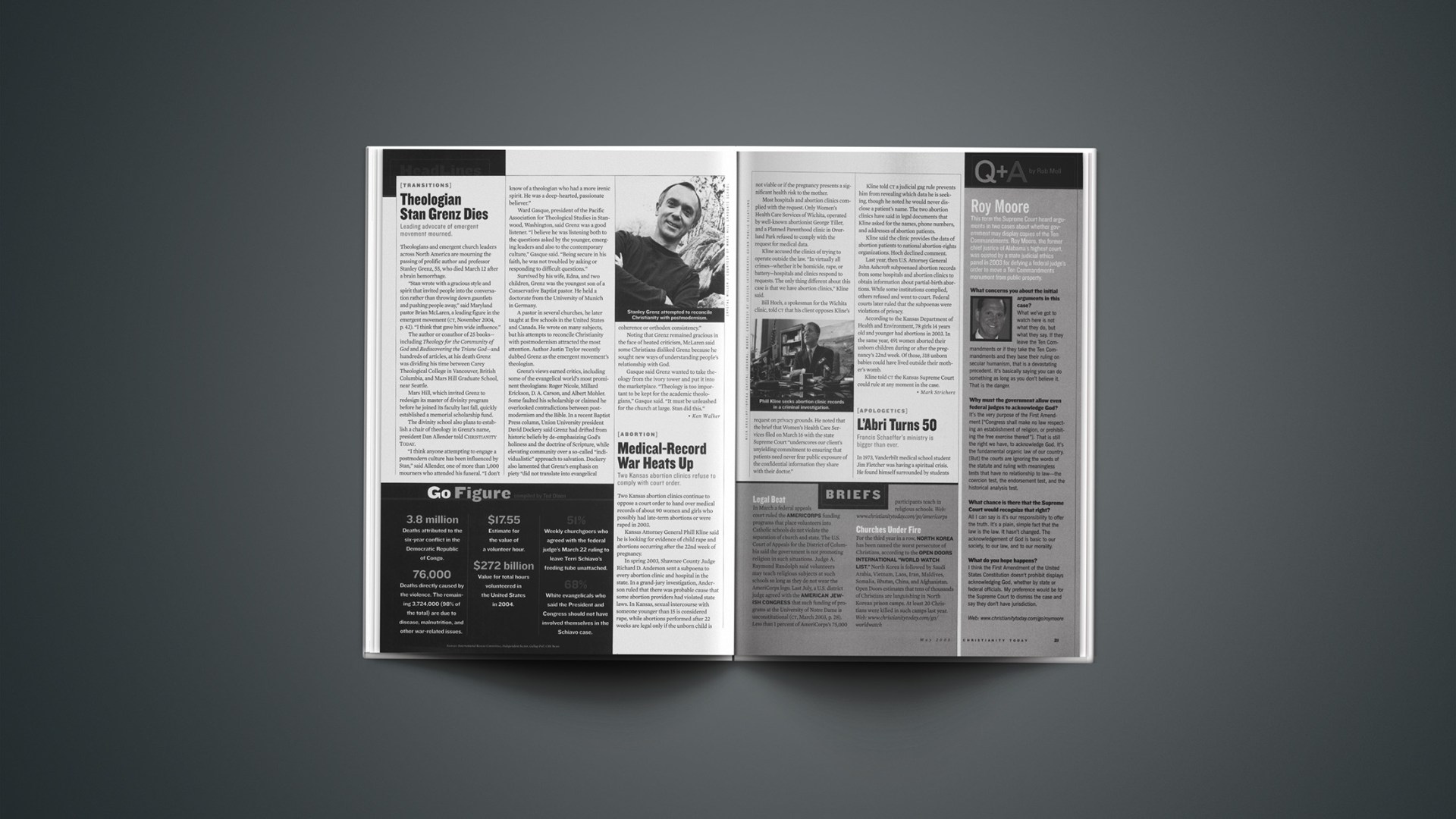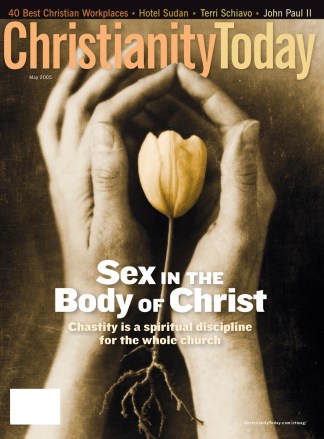In 1973, Vanderbilt medical school student Jim Fletcher was having a spiritual crisis. He found himself surrounded by students and professors who used science to dismiss Christianity, claiming it is impossible to know spiritual truth with certainty.
He decided to take a leave of absence from medical school, and with his wife sought out a place he had heard about in the Swiss Alps called L’Abri. Founded by philosopher, apologist, and pastor Francis Schaeffer in 1955, L’Abri (French for “the shelter”) had become a haven for disillusioned Christians, curious backpackers, and seeking non-Christians.
“I spent time with living, breathing Christians who helped me understand there really was an intellectual integrity to what I believed,” Fletcher said. “I studied science and religion and came to see that science stood on the shoulders of Reformation thinking.”
Fletcher left L’Abri determined to finish medical school. “All of a sudden it made sense to pursue intellectual things, so I could use my intellect for the glory of God,” he told Christianity Today. Fletcher is now a physician in Georgia.
In March, more than 1,000 of those who either have worked at or attended L’Abri, or who simply have been influenced by Schaeffer himself, gathered in St. Louis to celebrate the ministry’s 50th anniversary.
L’Abri started with the Schaeffers welcoming their daughters’ university friends into their small Swiss chalet on weekends. Today it has grown into a network of seven residential branches where “students” (anyone, age aside, who attends one of the fellowships) can visit for a few days or a few months. About 75 percent of those who attend are university age, but the branches regularly welcome older students as well.
The way Schaeffer led such discussions initially attracted students to L’Abri, said Jerram Barrs, resident scholar at Covenant Seminary’s Schaeffer Institute. Schaeffer was a respected philosopher and apologist in the 1960s, and he treated students with utmost respect. “He had a deep sense of the dignity of people,” Barrs said. “It didn’t matter if he was speaking to the President of the United States or the maid in his hotel room. Every person had significance in God’s sight.”
So strongly connected to Schaeffer was L’Abri that when Schaeffer died of cancer in 1984, people wondered what would happen. “Most people predicted L’Abri would fold,” said Ranald Macaulay, a Cambridge law student in the 1950s. Macaulay became L’Abri’s first student and later married Schaeffer’s daughter Susan.
L’Abri endured partly because of its organic nature, Macaulay said. There never was a plan to produce a certain number of additional branches in so many years. Rather, people whom Schaeffer discipled, including Macaulay, continued the work of L’Abri in a fashion loyal to Schaeffer’s philosophy.
Thus came the opening of three more L’Abri branches in Europe: one in England (started by Macaulay in 1971), followed by one in Holland, also in 1971, and one in Sweden in 1981. Two also opened in the United States: one in Rochester, Minnesota, in 1979 and one in Southborough, Massachusetts, near Boston, in 1980. Most recently, two more have opened in South Korea (1994) and in British Columbia, Canada (2003).
Dick Keyes, founder and co-director of the Massachusetts L’Abri, came to the Swiss L’Abri in 1964 with spiritual questions and later became a Christian. Throughout his 35 years of work with L’Abri, students have come with a host of questions. Many are trying to determine their life direction.
Some are wrestling with perennial questions of the Bible’s inerrancy or God’s goodness in an evil world. Many postmoderns are especially skeptical about spiritual matters. And others come out of frustration with the church or a Christian group, having been shunned for their spiritual questions or doubts.
“People are starved for a place were they can get the big issues of the world out on the table and discuss them,” Keyes said. “Students who come to L’Abri will often say, ‘I’m giving my faith one more chance before I chuck it.'”
Copyright © 2005 Christianity Today. Click for reprint information.
Related Elsewhere:
More on L’Abri, its several centers around the world, a video of sights and sounds and, L’Abri news is available on their website.
In 1997, CT ran a cover story on “Our St. Francis”:
The Dissatisfaction of Francis Schaeffer, Part 1 | Thirteen years after his death, Schaeffer’s vision and frustrations continue to haunt evangelicalism. (March 3, 1997)
The Dissatisfaction of Francis Schaeffer, Part 2 | Thirteen years after his death, Schaeffer’s vision and frustrations continue to haunt evangelicalism. (March 3, 1997)
The Washington Times also has an article about L’Abri’s 50th anniversary.










